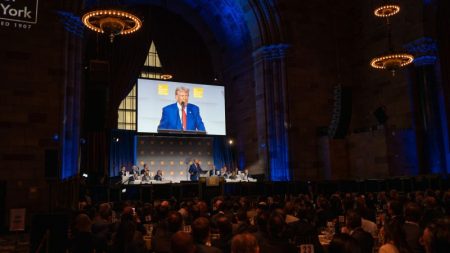Unlock the Editor’s Digest for free
Roula Khalaf, Editor of the FT, selects her favourite stories in this weekly newsletter.
Australia Day, a public holiday marking the arrival of the first ships carrying British convicts in Sydney in 1788, is traditionally celebrated on January 26 with family parties and barbecues. More recently, it has become a point of contention for Australians who believe the date should be changed because of its colonial origin.
The debate over the national holiday escalated this month after the country’s largest retailer Woolworths announced it would not stock Australia Day paraphernalia — including caps, temporary tattoos and plastic flags — due to a “gradual decline in demand” for merchandise.
The company, which joins other retailers including K-Mart and Aldi in its decision, said in a statement there had been a “broader discussion about 26 January and what it means to different parts of the community”.
Peter Dutton, leader of the main centre-right opposition party in Australia, called for a boycott of the retailer. “Until we see common sense from Woolworths, people should take their business elsewhere,” he said, describing the company’s stance as “against the national interest”.
Following Dutton’s calls for a boycott, two Woolworths outlets in Queensland, north-east Australia, were vandalised. Last week, Australia’s prime minister Anthony Albanese weighed into the debate: “My government is concerned with the fight against inflation. Peter Dutton’s concerned about fighting culture wars.”
The culture war is taking place at a time when ESG policies of companies around the world are under increasing scrutiny. The Australia Day controversy comes after some of the country’s biggest businesses, including Woolworths, BHP and Qantas, were pilloried by politicians last year for supporting, and in some cases funding, the unsuccessful campaign for the “Voice” referendum. The referendum would have altered the constitution to recognise the indigenous population and establish an advisory body to parliament.
Nicholas Reece, principal fellow at the University of Melbourne, said the Woolworths furore was part of a global trend of companies’ stances on social issues diverging from that of historically pro-business political parties.
“In the US in particular you see leading political figures like Donald Trump and Ron DeSantis attacking corporate leaders as woke ideologists and cultural Marxists. It has not got to that point in Australia yet, but the trend is definitely heading in that direction.”
Abas Mirzaei, a lecturer in marketing at Macquarie Business School, argued that Australian brands often take an ad hoc approach to implementing a “woke vision” and sometimes jump between different topics without a clear social agenda. “Companies in Australia do not have a good understanding of possible response scenarios to their woke moves,” he said.
The corporate campaigns may not even be successful, said Kos Samaras, director of strategy at polling company RedBridge Group. One of the lessons from the unsuccessful Voice referendum was that corporate support for the campaign did not appear help the cause, said Samaras.
“If you want the [Australia Day] date changed the last thing you want is companies like Woolworths getting involved,” Samaras said.
Woolworths has also been in the spotlight in recent weeks over allegations it was profiteering during a period of high inflation. Australia’s inflation rose at an annual pace of 4.3 per cent in November, higher than in the US, UK and Europe.
A poll conducted by YouGov published on Thursday showed that only one in five Australians surveyed supported Dutton’s calls to boycott Woolworths compared with two-thirds that said their main concern was excessive pricing by supermarkets.
The Australian government in October launched a review into regulation of the grocery sector. Woolworths declined to comment on Australia Day and its pricing.
Woolworths’ Australia Day merchandise decision has sparked a national debate but some see it as a typical shift in business strategy to reflect consumer sentiment.
Gary Mortimer, a professor specialising in consumer behaviour at QUT Business School, argued that the Australian retail sector, which generates A$420bn in revenue and employs 1.4mn people, is responding to a shift in community values.
“As a population matures, values shift, and it’s important for all businesses, not just retailers, to respond to those changes,” he said.
Peter Kirk, founder of indigenous creative agency Campfire X, which is working with Woolworths, said it was “very powerful” that the supermarket had publicly declared it would stop stocking Australia Day merchandise.
“Brands have to draw a line in the sand,” he said. “No one told them to do this. They decided to do it and had the conviction to do it. If brands are fair dinkum [genuine] they need to back it up.”
Read the full article here



